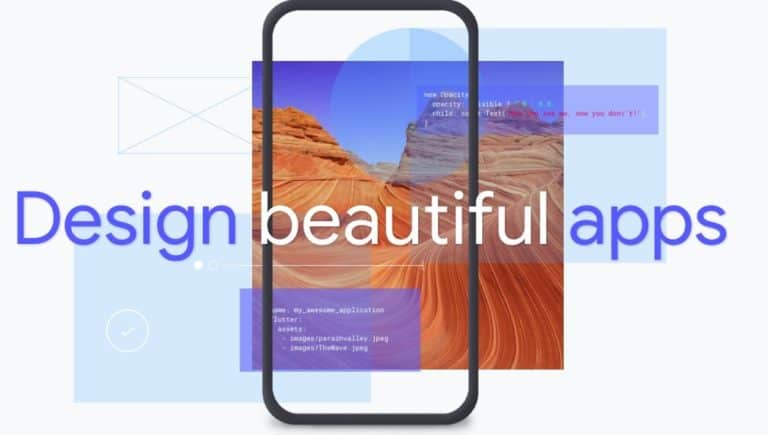Google released a major update for Flutter today. This is a framework that allows developers to develop apps for multiple platforms. Many of the updates focus on the stability and performance of Flutter, but some interesting new features have also been added.
Flutter offers developers a simple mobile interface in which they can develop apps for both Android and iOS. Building those apps is a lot easier and faster thanks to Flutter. It is especially easy to build an app’s interface, because it is all based on the Dart programming language that converts source code to a format that is suitable for Android and iOS.
Flutter update
Today Google released Flutter 1.2. Most of the new features are focused on stability and performance, but there are also some interesting new features. Flutter now has support for Android App Bundles. This was requested by many users and it helps developers to reduce the size of their apps.
App Bundles also supports the dynamic delivery function. This feature generates and optimizes MOT files for each device, so a user only needs to download the code needed to run an app. Flutter 1.2 also offers support for in-app purchases.
Finally, Google adds a new bugfinding tool called Dart DevTools to Flutter. Dart DevTools works through the browser and lets developers inspect widgets, view logs and debug apps – all from the same interface. The intention is that this tool will eventually be available in Visual Studio Code, but that may take some time.
Developing web apps
Ultimately, Google wants Flutter to be suitable for developing web apps as well. This is a long-term plan, but gradually Google is adding new features that will get everything ready for this. For example, with Flutter 1.2, Google adds keyboard events and mouse hover support. In the next few months Google wants to build on this and it is the intention to make these plans concrete.
This news article was automatically translated from Dutch to give Techzine.eu a head start. All news articles after September 1, 2019 are written in native English and NOT translated. All our background stories are written in native English as well. For more information read our launch article.